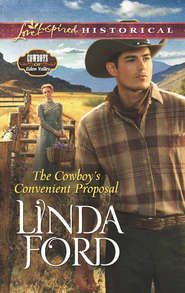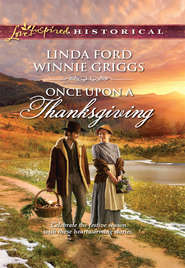По всем вопросам обращайтесь на: info@litportal.ru
(©) 2003-2025.
✖
The Road to Love
Настройки чтения
Размер шрифта
Высота строк
Поля
“Mr. Jones, is there any way I can persuade you to stay around to put the crop in for me? I wouldn’t be able to pay you much. But I could let you live in the settler’s shanty on the other quarter.”
Chapter Four
At her request, profound shock reverberated down Hatcher’s spine and out through his toes. He felt the texture of the wooden step through the thin soles of his boots. His insides had a strange quivering feeling. For a matter of several heartbeats he could not pull together a single coherent thought. Then he heard the persistent buzzing of an anxious fly, sucked in air laden with the scent of the freshly worked soil and willed the crash of emotions away.
She had no idea what she asked; the risks involved in her asking. If she did, her request would be that he move along immediately.
Words of remembrance flooded his mind, words branded into his brain within weeks of starting his journey, put there by reading and memorizing passages of scripture pointed directly at him. And the Lord’s anger was kindled against Israel and he made them wander in the wilderness forty years, until all the generation that had done evil in the sight of the Lord was consumed. Numbers thirty-two, verse thirteen, and verse twenty-three, Behold ye have sinned against the Lord: and you can be sure your sin will find you out.
He had sinned. For that he’d repented, but the scars, the burden and guilt of what he’d done could not be erased.
He was a wanderer. There was no remedy for that. “Ma’am, I’m a hobo. I never stay in one place.”
She made an impatient sound. “I thought most of the men were looking for work. I’m offering you that along with meals and a roof over your head.”
Silently he admitted the majority of men he’d encountered were indeed searching for a job, a meal and hope. He was not. He wanted only his Bible, his knapsack and forgetfulness. “Sky’s my roof.”
“It’s been known to leak.”
How well he knew it. They both looked toward the west, where clouds had been banking up most of the afternoon.
“Rain’s a good thing,” he said. “It ‘watereth the earth and maketh it bring forth and bud, that it might give seed to the sower, and bread to the eater.’ Isaiah fifty-five, verse ten.”
She snorted. “Rain is good but not if you don’t have shelter.”
He thought to remind her of Psalm ninety-four, verse twenty-two, My God is the rock of my refuge, and point out God was his shelter but decided to save himself any possibility of an argument and said, “Got me a tarpaulin.”
“My father had itchy feet. I’ve spent more than my share of nights under a tarp telling myself it kept off the rain. Trying to convince myself I wasn’t cold and miserable and would gladly trade my father for a warm place to spend the night.”
Her answer tickled his fancy. “That how you got this farm? Traded your father for it.”
She made a derisive sound. “Didn’t have to. I married Jeremiah and got myself the first permanent home I ever had.”
He closed his mind to remembrances of his first and only permanent home.
She continued, not noticing his slight distraction. “I fully intend to keep it. I will never again sleep out in the cold and open. My children will never know the uncertainty I grew up with.” She sighed. “As you already said, ‘the rain watereth the earth and maketh it bring forth and bud,’ but first the seed has to be in the ground. I can’t put the crop in when I can’t make the tractor run. Something you seem to be able to do.”
Somehow he’d had the feeling she’d see the verse differently than he. He’d meant it as a comfort, she took it as a warning. “Never say never. Tomorrow will be different.”
“You think the beast will run for me tomorrow?”
“I tuned it up best I could.”
“I hope you’re right. Somehow I doubt it.” She turned to face him fully. “Is there any way I can persuade you to stay just long enough to get the crop in?”
Her persistence scraped at the inside of his head, making him wish things could be different and he could stay, if only for the season. But like Cain, he was a vagabond and a wanderer. “I’ve already overstayed my limit. Besides, you don’t need me. There are plenty of willing and able men out there.”
The look she gave him informed him she was only too aware of how willing some of the men were.
“I’ll pray for you to find the right man for the job.” It was all he could do.
She nodded, and smiled. “Thank you. I realize the prayer of a righteous man availeth much.”
He didn’t know her well enough to know if she appreciated his offer to pray or considered it a handy brush-off. He pushed to his feet, preparing to depart.
“Anyway, thanks for your help today,” she said.
“Thank you for another excellent meal. And the cookies and biscuits.” He stuck his hat on his head.
“Ma’am.” He strode down the road toward the slough. He’d broken camp three times now, had been on his way this morning when he heard Mrs. Bradshaw talking to herself again. One thing the woman had to learn, you couldn’t fix a machine by talking to it the way you could persuade a horse to cooperate. You had to think differently. Listen to the sounds the machine made and learn what they meant.
He tried not to think of the woman’s repeated failure to operate the tractor. And as promised, he prayed for someone knowledgeable and trustworthy to come along and help her.
He could do no more. The tractor was old. But if she treated it kindly…
A cold wind tugged at his shirt as he made his way to his usual spot. He scurried around finding deadwood and leaves for a fire. The grass picked bare, he searched the trees for dry branches. By the time he got enough wood to warm him, the wind carried icy spears. He pulled on the worn, gray sweater he’d had for ten years and a black coat he’d bartered for. The elbows were shredded, the hem frayed, but it had a heavy wool lining and had kept him relatively warm through many winters.
He pulled the canvas tarp out of his pack, wrapped it around his shoulders, adjusted it so the rip was hidden and hunkered down over the fire.
He opened his Bible and read in the flickering firelight. But his thoughts kept leaving the page.
Mrs. Bradshaw had a huge load to carry. The farm was too much for a woman to handle on her own. He wished he could stay and help but it wasn’t possible. He had to keep moving. He couldn’t stay in one place long enough…
He shuddered and pulled the tarp over his hat.
Best for everyone if he moved on.
Mrs. Bradshaw could find a hired man in town. Like she said, most men were looking for work. And the majority of them were decent men, down on their luck.
He tried not to remember the few he’d met who were scoundrels. He was good at not remembering. Had honed the skill over ten years. But he couldn’t stop the memory of one man in particular from coming to mind.
Only name he knew him by was Mos. A man with an ageless face and a vacant soul who had, in the few days Hatcher reluctantly spent time in his association, robbed an old lady of her precious groceries, stole from a man who offered him a meal, and if Hatcher were to believe the whispers behind other men’s hands, beat another man half to death when Mos was caught with the man’s daughter under suspicious circumstances.
When Mos moved on, Hatcher headed the opposite direction. He needed no reminders of violence.
The cold deepened. Rain slashed across his face. He shifted his back into the wind.
Mrs. Bradshaw was a strong, determined woman. She’d find a way of getting her crop in. He’d pray Mos wasn’t in the area. Or men like him.
She was right about one thing, though. No matter how long he spent on the road, he never learned a way of ignoring a cold rain. Worse than snow because you couldn’t shake it off. It seeped around your collar and cuffs, doused the fire, left you aching for the comforts of a home.
He thought of his home. Something he managed to avoid for the most part. He had Mrs. Bradshaw and her talk of protecting her place to thank for the fact such thoughts were more difficult to ignore tonight.
But he must. The place he’d once known as home was gone. Now his home was the world; his father, God above; his family, believers wherever he found them, although he never stayed long enough to be able to call them friends.
The wind caught at his huddled shelter and gave him a whiff of cows and hay. Before he could stop it, a memory raced in. He and Lowell had climbed to the hayloft to escape a rainstorm. Lowell, three years older, had been his best friend since Hatcher was old enough to recognize his brother’s face. Lowell had one unchanging dream.
“Hatch, when you and I grow up we’re going to turn this farm into something to be proud of.”











